Imagine a melon whose miniature size means you can hold it in your hand and eat the whole thing in one single sitting.
Israeli scientists at the Volcani Institute, Israel’s prestigious Agricultural Research Organization, have developed just that.
The small size of this new kind of melon means each fruit is an individual serving – eliminating the need to save much of the fruit for later or even have to throw it away.
The scientists used a melon mutation that produces multiple small fruits instead of a few large ones.
Crossing the mutant fruit with various breeds of melon created a similar effect in all the types that were tested. Genetic analysis had shown that this trait is governed by a single gene, which the researchers named the “superfruiter.”
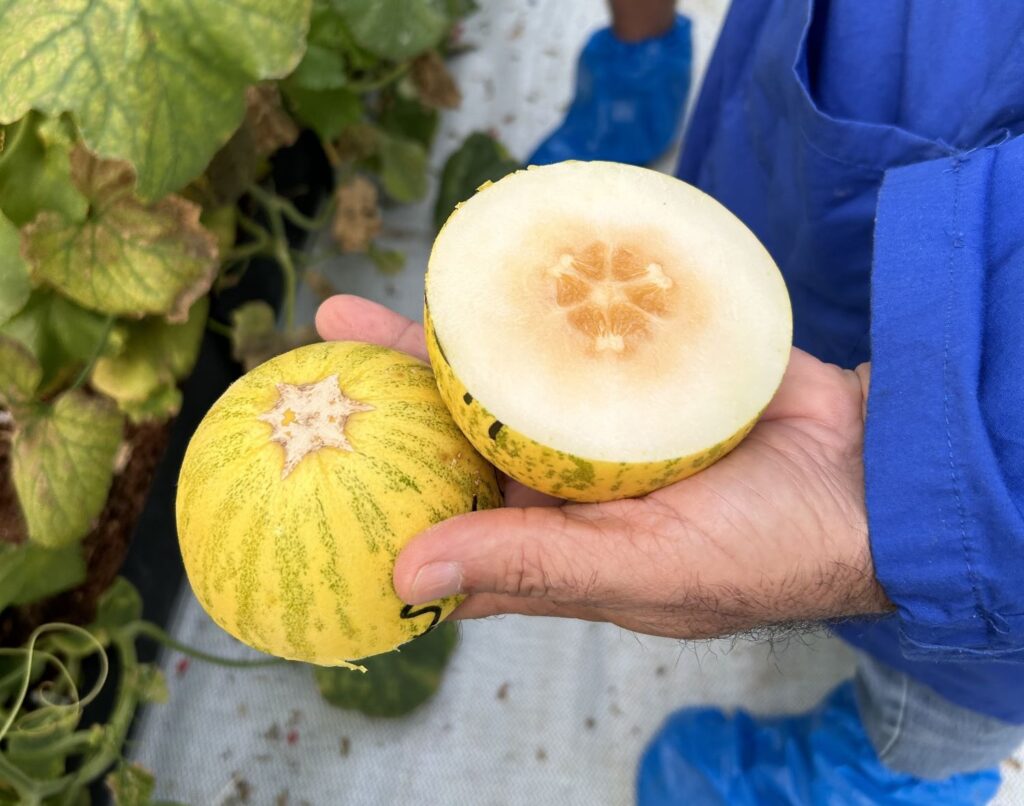
The mutant gene was identified and cloned, and its function and mechanism of action were exposed. The gene and its effect were also patented worldwide.
This in turn led to the creation of the SuperFruiter startup, which began work on developing products based on the gene of the same name.
There is a demand for smaller fruit in modern markets, preferably in a personal-sized serving, the company says.
When this was previously tried with melon, a decrease in fruit size led to a decrease in yield, but the SuperFruiter gene technology made the fruit yield increase fivefold, despite the fruit being three times smaller than the average size.
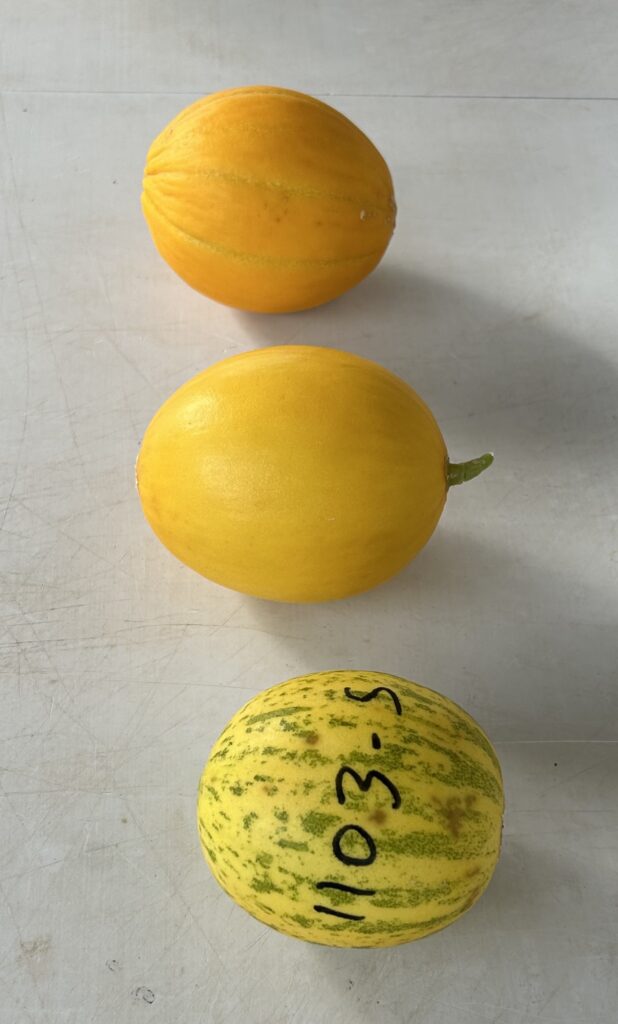
SuperFruiter has been able to produce the small fruit economically and to a high quality, it says. The startup has already created smaller versions of different types of melons, including Yellow Canary and Piel de Sapo, some of which are already being tested semi-commercially around the world.
While the production of the mutated fruit is relatively new, the work leading up to its creation took more than a decade.
More than 15 years ago, SuperFruiter founder and chief scientist Dr. Yaakov Tadmor heard about a tomato mutation library created by his friend Prof. Dani Zamir of the Hebrew University of Jerusalem’s Faculty of Agriculture, Food and Environment in Rehovot.
Zamir’s mutation library included a collection of various families, each originating from the self pollination of a single mutagenized seed and containing different changes in genes.
Tadmor decided to work on producing the same effect in melons – viewing the mutation library as a resource for new melon variation and as a tool to identify the genes.
He mutagenized thousands of seeds without a specific purpose in mind, categorizing the various visible changes that occurred in the progenies of each of the treated seeds – known as a mutant family.
Sign up for our free weekly newsletter
SubscribeBut one of the mutant families resulted in a significant increase in the number of fruit produced, accompanied by a significant decrease in the fruit size. This was the first step on the road to creating SuperFruiter.
“When I saw these plants in the field, I had a sense of ‘Eureka!’” Tadmor tells NoCamels.
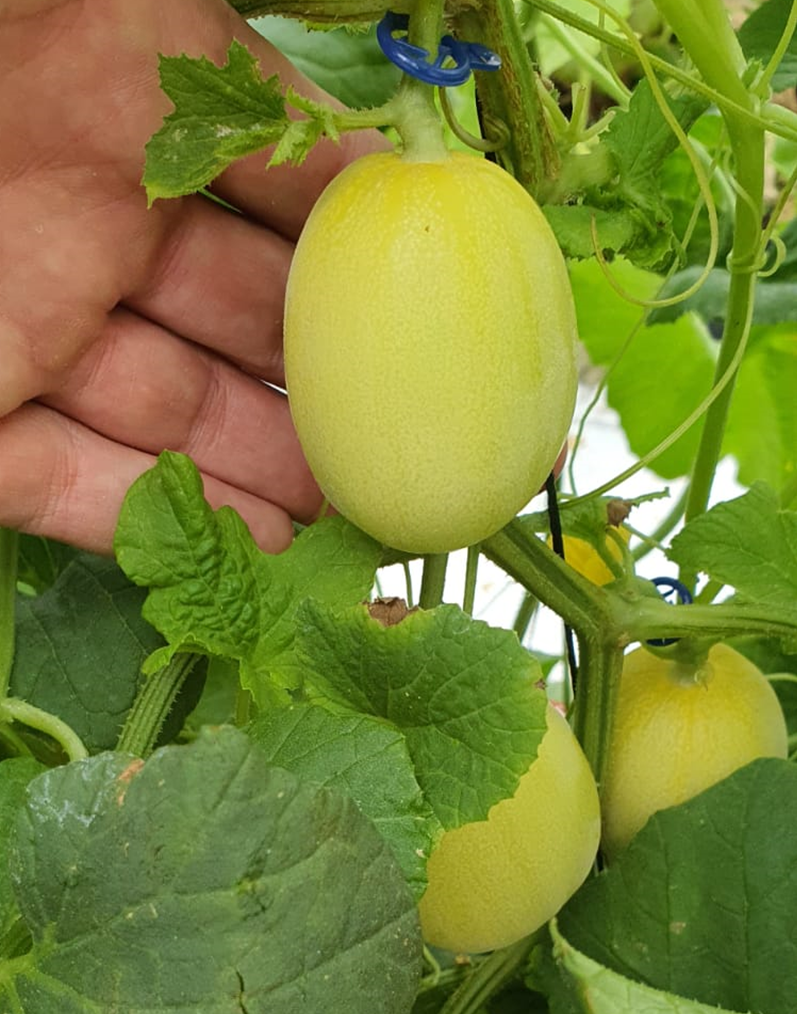
Given the segregation within this mutation family, it was obvious to Tadmor that this phenomenon had been caused by a single gene, and it could be used to change how melon – and other fruits – are grown and eaten.
“I thought to myself: well this is a breakthrough in melons. However, potentially we can make similar changes in any other fruit,” he recalls.
He came together with other experts and investors, and in 2021, established the SuperFruiter startup.
This single mutation changes the melon in several different ways.
Not only does it reduce the dimensions of each fruit to around the size of the palm of the hand and weighing around just 800 grams, it also significantly increases the number of fruits per plant from four at most to 20, and even potentially 100.
The small size of the fruit means that each plant can be grown in less area, requiring fewer resources. According to SuperFruiter CEO Yael Alter, the fruit yield per hectare is around 60 percent greater than it is for unaltered melons.
The seeds of the melons are also empty or undeveloped, so that they cannot be used to produce a fruit akin to that of SuperFruiter. This gives SuperFruiter protection from intellectual property infringement.
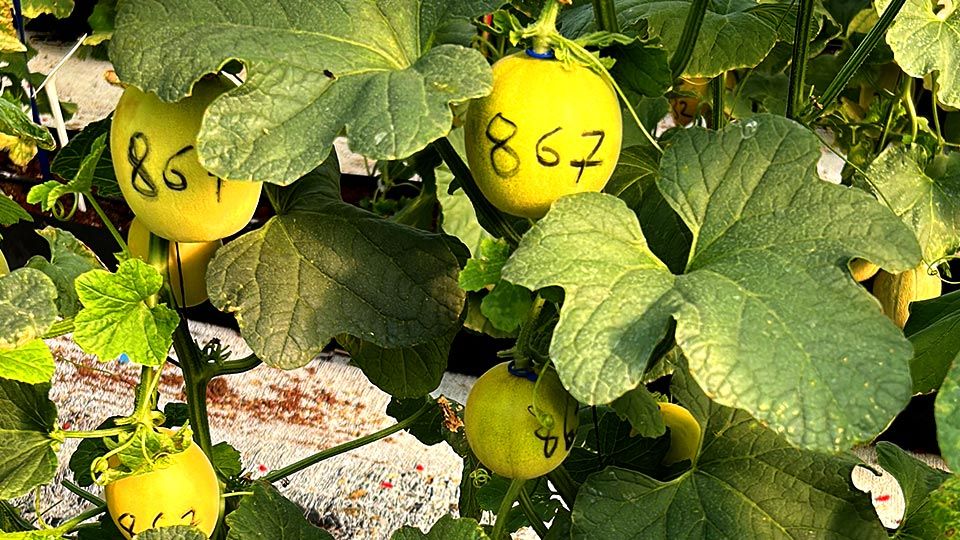
The startup is currently working on producing the melon seeds in a more commercial way, as at present the process is carried out manually. Alter hopes, however, that the product will be available on the market for all to try in the next year.
The company is also now working on a new line of a dwarf melon that will be 100 percent edible – including the rind and the seeds inside.
It has recently decided to launch this new type in Spain, the world’s third-largest producer of the fruit.
“It will be very sweet like all other melons,” says Alter. “You’ll be able to eat it like you’re eating an apple.”
Related posts

Editors’ & Readers’ Choice: 10 Favorite NoCamels Articles

Forward Facing: What Does The Future Hold For Israeli High-Tech?

Impact Innovation: Israeli Startups That Could Shape Our Future


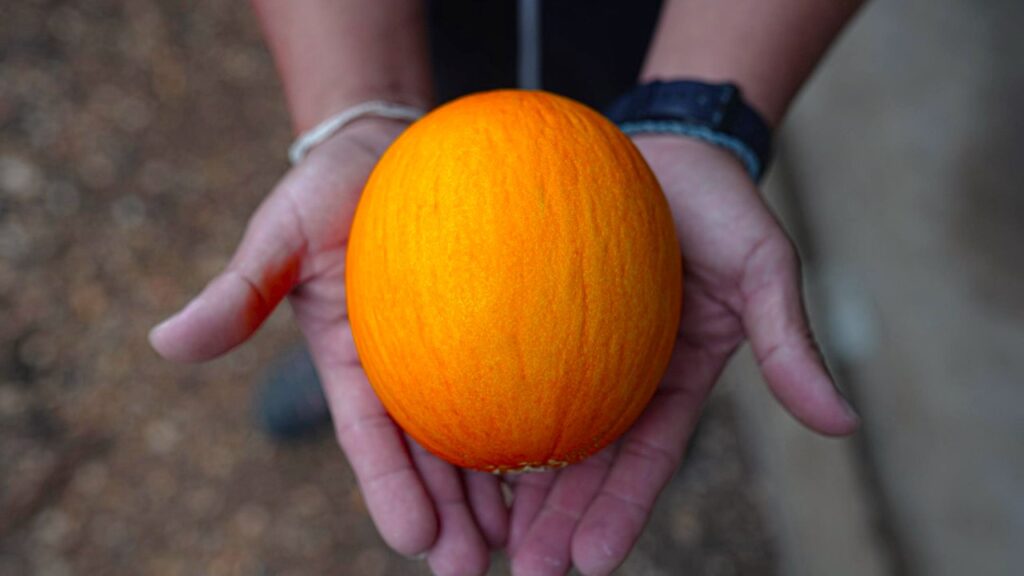

Facebook comments